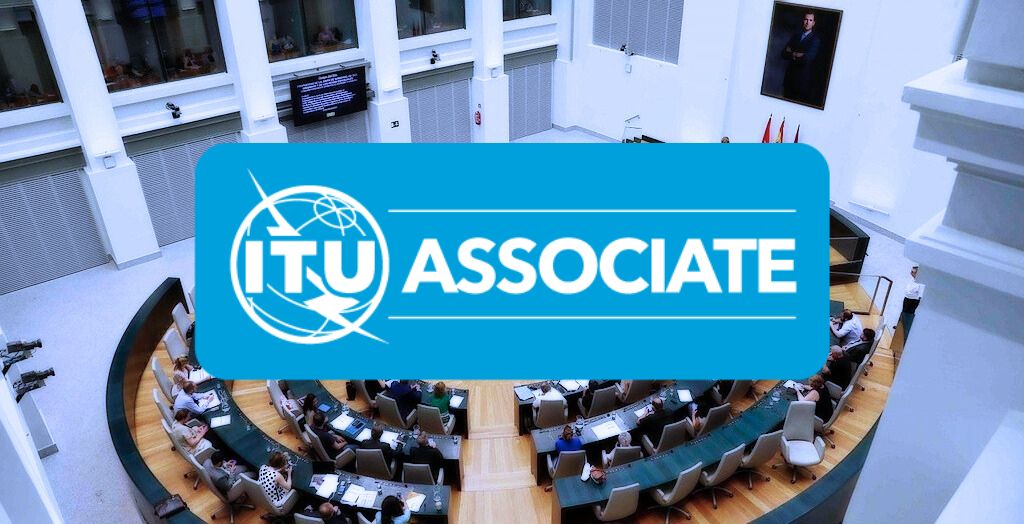

On May 19th, inSuit presented its contribution regarding digital accessibility at the ITU (International Telecommunication Union) Study Groups, where it was highlighted the success case of the transposition of the EU Directive 2016/2102 to the Spanish Royal Decree 1112/2018.
As an official associate member of the ITU, inSuit has the responsibility to make a series of contributions as experts in digital accessibility, and in conjunction with the collaborations of other associated members, of a series of suggestions and best practices are developed to be implemented by those countries that pursue the goal of closing the digital divide.
In this contribution, the aim was to identify the good practices implemented in the transposition of the directive emphasizing the importance of creating Units Responsible for Accessibility (URA) and mandatory periodic tasks.
To understand this fact, it should be noted that in recent years there have been significant advances in digital accessibility standards and the legislative framework including the publications of the WCAG 2.1, the European technical standard EN 301 549 v3.2.1 and the European Directives 2016/2102 and 2019/882.
These developments led the Spanish Web Accessibility Observatory to require the creation of the URAs in public administration bodies. These units are responsible for carrying out mandatory periodic tasks that guarantee compliance with the accessibility requirements demanded in Royal Decree 1112/2018.
In this article, we will analyze the success case of the transposition of the Directive in Spain, as well as the importance of the creation of the URAs and the mandatory periodic tasks defined in the Royal Decree that today allow Spanish public administration bodies to comply with the accessibility requirements at an institutional level.
The Role of Units Responsible for Accessibility (URAs)
Under the European legislative framework of digital accessibility, the transpositions of the Directive in the different countries present discrepancies in terms of the requirements, compliance criteria, application, and monitoring of the accessibility guidelines to be met.
In Spain, a sustainable accessibility compliance model has been established at a national level, where the responsibilities for monitoring and reporting are distributed amongst national agencies (such as the Web Accessibility Observatory and the National Authority), thus delegating the compliance responsibility to the URAs created in each public administration body.
In this way, the URAs play a fundamental role in meeting the accessibility requirements at an institutional level. These units are responsible for monitoring the accessibility level of public body websites and mobile applications, providing information about the level of compliance that ensures conformity with the established accessibility criteria.
Additionally, the URAs investigate disproportionate burden cases, verify conformity with accessibility declarations, and ensure that user complaints and feedback are properly addressed.
Importance of the mandatory periodic tasks of Royal Decree 1112/2018
One of the keys to the success of the Accessibility Directive’s transposition in Spain has been the implementation of mandatory periodic tasks.
These tasks establish a structured and systematic framework to ensure the continuous compliance of the accessibility requirements in public web sites and applications.
Furthermore, the mandatory periodic tasks play a fundamental role in the process of improvement, maintenance, and evolution of digital accessibility in Spain.
These tasks include:
- Regular assessment of the conformity of websites and mobile applications with accessibility criteria.
- Identification of areas for improvement.
- Implementation of corrective measures.
- Usability testing with people with disabilities.
- Their mandatory nature establishes a clear commitment on the part of public bodies to constantly maintain and improve the accessibility of their digital platforms.
Their mandatory nature establishes a clear commitment on the part of public bodies to constantly maintain and improve the accessibility of their digital platforms.
This avoids treating accessibility as a secondary aspect or an optional task and ensures that it is given the importance and priority it deserves, promoting accountability and responsibility.
Control and execution bodies, responsible for monitoring and ensuring compliance with accessibility requirements, can use the results of these tasks as a basis for assessing progress and taking corrective measures in case of non-compliance.
Also, reporting agencies use the periodic information to present an overview of accessibility at the national level and assess the impact of the policies implemented.
Advances in technology, changes in user needs, and updates of standards and directives require a dynamic and adaptable approach.
Establishing periodic tasks ensures that public bodies are up-to-date with the latest accessibility guidelines and requirements, so that measures can be taken to keep them up-to-date.
This is demonstrated by the latest monitoring reports, which show that the implementation of these tasks has resulted in a significant increase in compliance with accessibility requirements, where 85% of websites fully or partially meet the requirements.
Implementation of URAs and mandatory periodic tasks as a contribution to digital accessibility before the ITU
In conclusion, it can be said that the transposition of the European Accessibility Directive in Spain through Royal Decree 1112/2018 has been a success case thanks to the implementation of the Responsible Accessibility Units and mandatory periodic tasks.
This is because, by assigning clear responsibilities and establishing monitoring and accountability processes, in conjunction with the commitment of all involved parties (both public and private sector), an environment is created where accessibility becomes a strategic priority and is integrated into institutional policies and practices.
An approach that has allowed Spain to position itself as a benchmark in the field of digital accessibility at a European level.
Thus, we see how the exchange of best practices and continuous support to public bodies on their way to full accessibility are fundamental pillars to build a more inclusive society, in which all people, regardless of their abilities, can fully participate in the digital environment and enjoy its benefits.Don’t miss out on being an agent of change, if you still don’t have digital accessibility on your digital platforms, don’t hesitate to contact us! Eliminating the possible barriers that exist on the web is everyone’s task.


